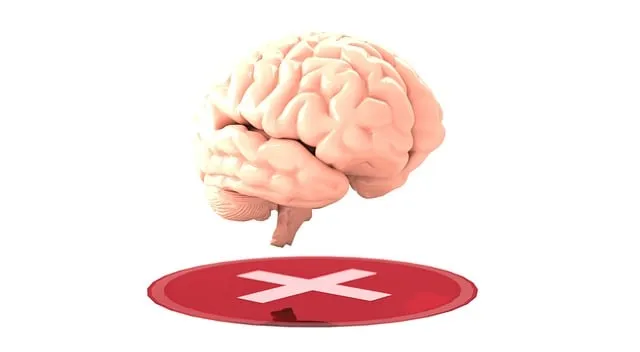Online and in-person mental wellness self-assessment tools, like those offered by Kaiser Permanente Boulder, facilitate individual control over emotional, psychological, and social well-being. Culturally sensitive and non-intrusive, these assessments range from journaling exercises to interactive surveys, providing insights for personalized mental health care. Kaiser Boulder's comprehensive services, including counseling, group support, and crisis intervention, coupled with digital tools, promote mental wellness awareness and reduce stigma. These resources cater to diverse populations, offering tailored coping strategies and tracking progress over time, thereby enhancing overall mental well-being.
Mental wellness self-assessment tools play a crucial role in early detection and management of mental health issues. This article delves into the development of such tools, focusing on personalized assessments tailored to individual needs. We explore successful initiatives like Kaiser Permanente Boulder’s mental health services, identifying gaps that drive the need for accessible tools. By examining current trends and best practices, we highlight strategies for enhancing mental wellness through innovative self-assessment solutions, ensuring folks in Boulder and beyond receive timely support.
- Understanding Mental Wellness Self-Assessment Tools
- Kaiser Permanente Boulder and Its Mental Health Services
- Identifying the Need for Personalized Assessment Tools
- Developing Effective Self-Assessment Tools
- Enhancing Mental Wellness through Accessible Tools
Understanding Mental Wellness Self-Assessment Tools

Mental wellness self-assessment tools play a crucial role in individuals taking charge of their mental health and identifying potential issues early on. These tools, often accessible online or through healthcare providers like Kaiser offering mental health services in Boulder, serve as initial screening mechanisms to gauge one’s emotional, psychological, and social well-being. They are designed to be user-friendly and non-intrusive, encouraging folks to reflect on their thoughts, feelings, and behaviors without judgment.
The development of such tools involves careful consideration of various factors, including cultural sensitivity and the ability to adapt to diverse populations. For instance, healthcare provider cultural competency training ensures that these self-assessments can accurately assess mental wellness across different cultural backgrounds, promoting inclusive care. While they may not replace professional diagnosis, they effectively serve as a first step in Depression Prevention, offering valuable insights for those seeking support or simply interested in enhancing their overall Mental Wellness.
Kaiser Permanente Boulder and Its Mental Health Services

Kaiser Permanente Boulder is renowned for its commitment to comprehensive healthcare, including exceptional mental health services. The organization offers a range of resources and programs designed to support individuals’ emotional well-being. Their approach integrates traditional therapy with innovative practices, ensuring a tailored experience for each patient’s unique needs. From individual counseling sessions to group support programs, Kaiser Permanente Boulder provides a safe space for people to explore and address their mental health concerns.
One notable aspect of their services is the focus on reducing the stigma surrounding mental illness. Through various educational initiatives and outreach programs, they foster an environment of understanding and empathy. Additionally, Kaiser’s crisis intervention guidance plays a pivotal role in helping individuals navigate challenging situations. These services not only cater to immediate crises but also empower individuals with long-term coping strategies, contributing to overall emotional healing processes.
Identifying the Need for Personalized Assessment Tools

In today’s digital era, the demand for accessible and personalized mental wellness self-assessment tools has never been higher. While services like those offered by Kaiser in Boulder provide excellent mental health support, individuals often seek additional resources to complement their treatment plans. This need arises from the unique and complex nature of each person’s mental health journey; what works for one individual might not be effective for another. Thus, there is a growing recognition of the importance of developing tools tailored to an individual’s specific needs and preferences.
One such tool gaining traction is Mental Wellness Journaling Exercise Guidance, which encourages individuals to reflect on their thoughts, emotions, and behaviors. This practice not only fosters self-awareness but also serves as a means to track progress over time. Additionally, Inner Strength Development and Empathy Building Strategies are integral components that can be integrated into these assessments. By combining introspection with targeted exercises, these personalized tools have the potential to revolutionize mental wellness management, ensuring individuals receive comprehensive support tailored to their unique circumstances.
Developing Effective Self-Assessment Tools

Developing Effective Self-Assessment Tools for Mental Wellness is a multifaceted process that involves understanding the nuances of human psychology and leveraging innovative technologies. Organizations like Kaiser, known for its comprehensive mental health services in Boulder, have played a pivotal role in this domain by offering resources that facilitate personal growth and recovery. These tools are designed to empower individuals to take charge of their mental well-being, enabling them to identify areas for improvement and track progress over time.
One effective approach involves integrating various assessment methods tailored to individual needs, including surveys, journaling prompts, and interactive exercises. For instance, a comprehensive self-assessment might incorporate questions from the Mental Health Policy Analysis and Advocacy framework to gauge awareness and understanding of mental health policies in one’s community. Additionally, Community Outreach Program Implementation strategies can be incorporated to ensure these tools reach diverse populations, fostering inclusivity and accessibility. Inner Strength Development techniques should also be woven into the design, encouraging users to recognize and leverage their innate resilience.
Enhancing Mental Wellness through Accessible Tools

In today’s digital era, the development of accessible mental wellness self-assessment tools is revolutionizing the way individuals take charge of their mental health. Organizations like Kaiser, known for providing top-tier mental health services in Boulder and beyond, are at the forefront of this initiative. These tools offer a convenient and confidential way for people to assess their mental well-being, identify potential issues early on, and seek appropriate support. By making such resources widely available, public awareness campaigns can be effectively enhanced, fostering open conversations around mental illness and reducing the stigma associated with seeking help.
Additionally, these self-assessment tools play a pivotal role in trauma support services by enabling individuals to gauge their emotional state after traumatic events. Through regular monitoring, they can prompt users to take proactive measures, ensuring timely interventions and promoting better coping mechanisms. Kaiser’s commitment to mental wellness aligns perfectly with the broader efforts of Mental Illness Stigma Reduction, as these tools not only educate but also empower individuals to manage their mental health effectively.
Mental wellness self-assessment tools play a pivotal role in empowering individuals to take charge of their mental health. As demonstrated by Kaiser Permanente Boulder’s comprehensive mental health services, organizations like theirs can drive accessibility and effectiveness through personalized assessments. By understanding the unique needs of users and leveraging innovative development strategies, we can create tools that enhance mental wellness for all. Kaiser’s commitment to these services in Boulder underscores the potential for such initiatives to revolutionize mental healthcare, making it more inclusive and tailored to individual requirements.






